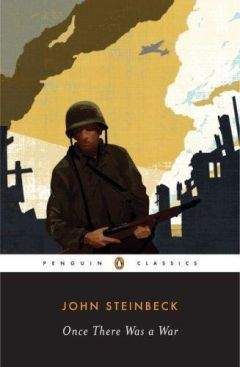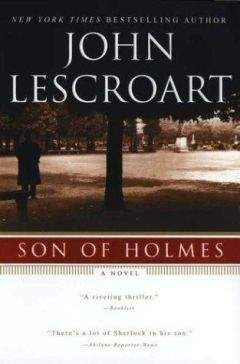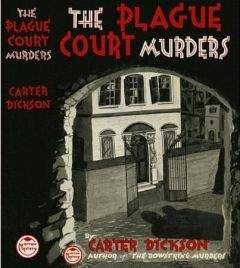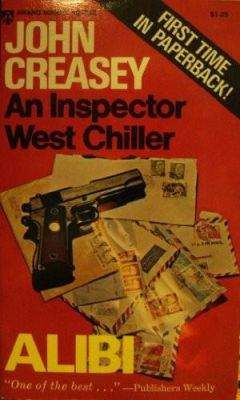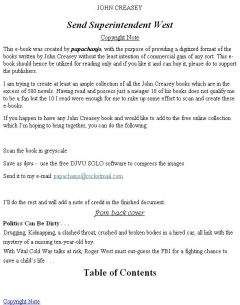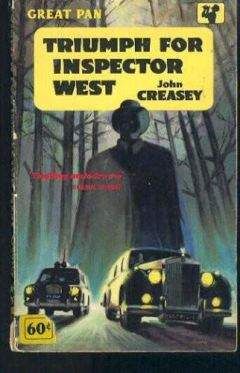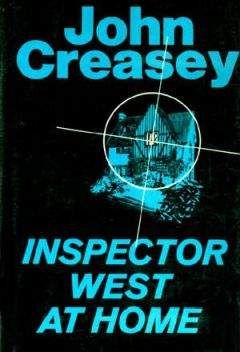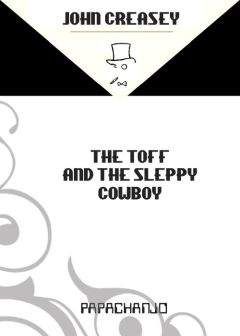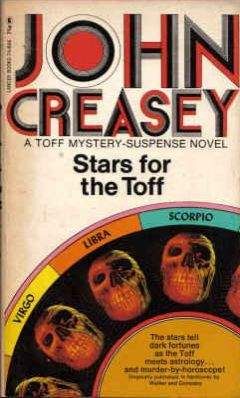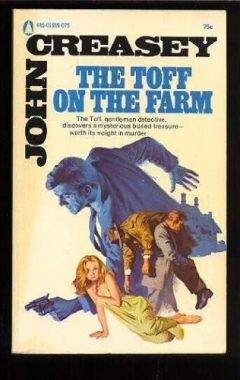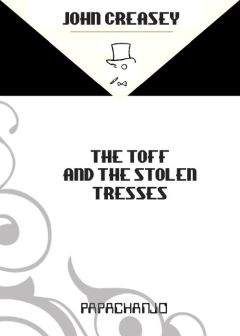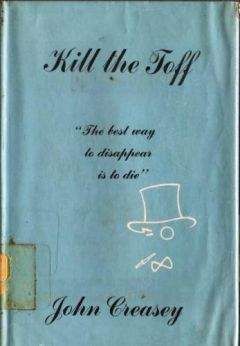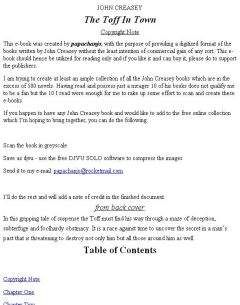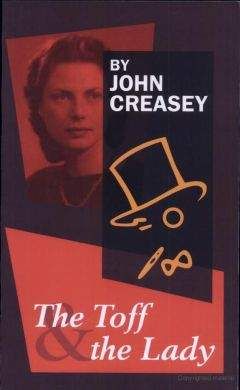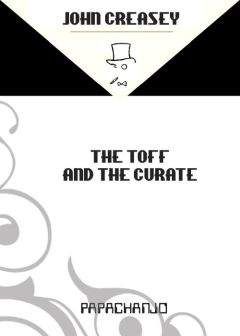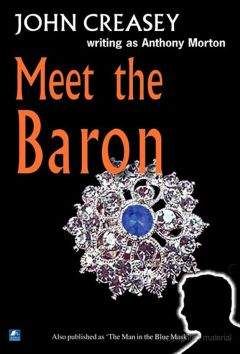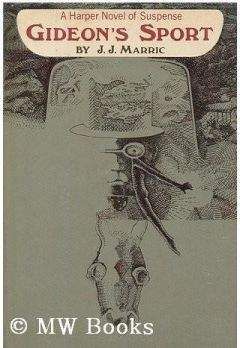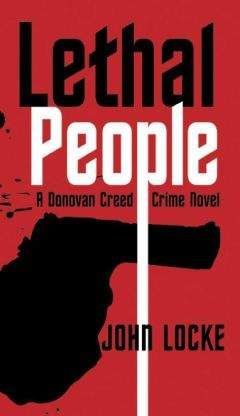John Creasey - Inspector West Alone
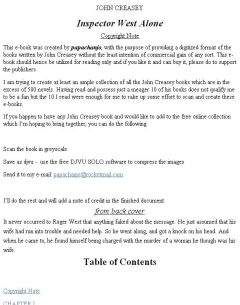
Скачивание начинается... Если скачивание не началось автоматически, пожалуйста нажмите на эту ссылку.
Жалоба
Напишите нам, и мы в срочном порядке примем меры.
Описание книги "Inspector West Alone"
Описание и краткое содержание "Inspector West Alone" читать бесплатно онлайн.
Another picture came, this time of a small cafe, with a big striped awning over a dozen or so small tables, a waiter standing in white jacket by the open door, one couple drinking out of long glasses. Then the girl appeared and sat down as far as she could get from the couple. The waiter approached her; she shook her head, said something, indicated that she was waiting for a companion. The waiter took up his position in the doorway. The girl lit a cigarette, adjusted her long skirt, looked up and down the street. Twice she glanced at her wrist-watch. She began to frown.
She opened her handbag, and took something out—a letter? She studied it closely. Yet her eyes didn’t move from side to side, as they would have done had she been reading. She put the thing down, and he saw that it was a photograph; he thought it was of a man, but couldn’t be sure. The girl finished her cigarette, and began to tap her foot on the ground.
Then a shadow appeared over her.
She glanced up—and although the frown disappeared, she didn’t smile, but looked anxious. She said something, and Roger wished this weren’t a silent film, then scoffed at himself for the inanity of the thought.
The shadow grew into a man, who had his back to the camera. He pulled up a chair and sat down. The waiter reappeared. The man with the girl leaned forward and hid most of her from Roger. The man was hatless; he had fair wavy hair which needed cutting. There was something familiar about him; Roger couldn’t place it. Then the man turned, as the waiter approached, and Roger caught a glimpse of the profile—and sat up, a chill shiver running up and down his spine, a physical thing which he couldn’t prevent.
It was his profile.
He had never seen that girl in his life before, but he was sitting there as if in the flesh and talking to her.
The picture faded.
But the whirring continued, it hadn’t finished yet. The light seemed bright. The sweat on Roger’s forehead was cold; this was getting on his nerves, he could sense unnamed terrors hidden from him.
Another picture flashed on-
Of the girl—without a face, or with a face that was unrecognizable. She was just as he had seen her at Copse Cottage.
And then a man spoke from a corner of the room.
“Why did you do it, West? Why?”
CHAPTER VIII
CONVERSATION
ROGER hadn’t heard him come in; hadn’t dreamt that anyone was there. He started violently, and peered towards the corner. He could see a vague shape, which faded as the light from the projector died away.
“Why did you do it, West? Why?”
There was nothing sinister about the voice; it was just a man’s, earnest, rather grim. He’d heard it before, in the car driving down the hill near Helsham.
The man moved; Roger heard the sound, but it was too dark to see anything.
“Why don’t you tell me? Why did you do it?”
The man moved again.
Light came on, not bright, just a single wall-lamp near the door; everything in this affair seemed to be played out in semi-darkness. The man was little more than a shape, but his eyes were like silver fire.
“Why did you do it?”
“I don’t get this. I didn’t do it.” The denial sounded weak, even to Roger; he wasn’t really on top of himself.
“Who do you think will believe you?” the man demanded.
“Anyone with sense.”
“Anyone who sees that film, and knows the rest, will believe that you killed her, West.”
Roger turned and sat down. The cigarette-box was on its side, and the cigarettes were spread over the table. He took one and lit it; it was a relief to smoke. The man stood staring at him.
“What do you want?” Roger asked, heavily.
“I want you to get some facts straight. Don’t you remember going to Paris? Don’t you remember going to the cottage?”
“I haven’t been to Paris for over a year.”
“You could have seen her then.”
“I didn’t see her. I’ve never seen her before.”
The man drew nearer.
“West, you don’t seem to realize your position. You went to Paris and saw that girl—the camera doesn’t lie, the film is here, a copy of it can be sent to Scotland Yard. You went to Copse Cottage, you were alone there when the girl was killed. You appeared to be someone other than yourself—to fool the police. You were rescued by friends, who nearly killed a police-constable. Your colleagues at the Yard think you killed the girl. The evidence is so strong. That film, proving that you knew her before and had an affaire with her, gives you a motive. You met her by assignation in a lonely country cottage. You arranged that someone should telephone the Yard with a faked message, pretending to come from your wife, but you didn’t realize that your wife would deny having sent such a message. You thought you’d get safely home and no one would suspect you, didn’t you? But you didn’t have the
Roger said: “One of us is crazy.”
“No one at Scotland Yard would believe that you’re crazy. You’re too well known, too clever. This has all the hall-marks of a crafty crime—the kind of crime that a man who knows the law might commit. You’re a policeman.” The voice maintained its monotonous level, there was no sneer, no hint of a gloating smile, it was just factual. “You know how the police build up their cases, you’ve often collected the evidence to send a man to the gallows. You’ve briefed the prosecuting counsel a hundred times. Imagine him being briefed with all this evidence! That you once went to Paris; that this girl is French; that you saw her there; that she came to England and threatened to break up your home life; that you planned to meet her and to kill her, to save your domestic life from collapse. Don’t just tell me that you didn’t do it. West, tell me what you think a prosecuting counsel would make of it.”
Roger said: “In every trial, there’s a defending counsel, too.”
“I’ll leave you to think it over,” said the man abruptly. He put his hand to his pocket, pulled out an envelope and tossed it into Roger’s lap. He turned towards the door, and as he went out of the room the shutter began to fold up, and sunlight came in through the window again.
Roger fingered the large envelope, which seemed to have several folded papers inside. He groped for another cigarette. His hand was unsteady when he took the contents from the envelope. There were three smaller envelopes, each of them stamped with a French stamp; each with a Paris postmark, each with a blue sticker reading Par Avion, each addressed to Arthur King, at 18 Sedgley Road, Kingston-on-Thames. The writing was large and feminine, the ink bright blue. He took out the first letter, and the words which flew up at him were: “My darling Arthur—”
The writing was the same as on the envelope. The address was simply: Paris, with the date. He scanned the first. It was a love letter, as from a woman pouring out her heart. It was a good letter, written in fair English with a few odd turns of phrase, and an occasional word or expression in French; the signature was “Lucille.” There was a postcript: “Soon, I must see you, when can you come?”
He opened the second letter, dated two weeks afterwards, and the first words were the same, and then it went on with a fierce directness which shook him badly. “I am coming to see you. Yes! I am able to come to London, very soon. I am delirious with the delight of it. Cheri . . .”
The third letter was very brief; she would be in England on Saturday, March 12, and he was to write to her at the Oxford Palace Hotel, London, to say when and where he could meet her.
* * * *
He could tear the letters up and be no better off. They would have anticipated that, would have photostat copies, and there would be other letters, too, not just these three. Letters addressed to Arthur King, and passionately written. Put these into the hands of the prosecuting counsel together with everything else, and no jury in the country would acquit him. The film was faked. It wasn’t hard for experts to fake a film, and it might be possible to get other experts to testify that it had been faked, that one had been placed upon another—but by itself that wouldn’t be a defence. He had been superimposed on the picture; that was all—a simple technical problem. Someone had photographed him, taken away the background—or it needn’t be a faked film! Make-up could create features like his for the purposes of a film.
He went back to his chair and read the letters through again and felt something of the passion in them and knew one thing; Lucille had been in love with the man to whom she had written. They weren’t faked; they had a quality which reflected sincerity. So Lucille had had a lover, and had come to London to see him.
Who was the lover?
The man with the fiery eyes?
* * * *
The man came in again.
* * * *
Roger really saw him, this time. Apart from his eyes there was nothing remarkable about him. He had a thin face, not ugly, not handsome—a vague kind of face. His lips were unusually well-shaped and red. He had brown hair, brushed straight back from a high forehead, with a wide centre parting. He was dressed well in dark grey, but apart from those eyes, he was just an ordinary man. He walked easily, smiled, and sat down.
“Have you read them?”
“Yes.”
“Have you asked yourself what a prosecuting counsel would say?”
“The defence would want proof that the letters were addressed to me.”
“Oh, they’d have proof. Admirable proof. From two or three blameless people who would swear that you often went to 18 Sedgley Road to collect these letters—irreproachable witnesses. West. Do you like it?”
Roger said: “Not much. When are you going to tell me what it’s all about?”
The man laughed—as lightly as if this were a normal conversation, and Roger had made some casual quip.
“Now you’re being sensible,” he said. “You’re half-way towards doing a deal. Before you’ve finished you’ll have to come all the way, because it’s the only thing that will save your neck from being stretched. I’ll tell you, later, possibly to-morrow. I’ve one or two other items of information for you. This house is a private asylum. You’re not the only borderline case they’ve had here. The doctor, like those witnesses, is irreproachable. The staff is thoroughly trained. Some time ago, a Mr. King was brought here by his friends, because he was a psychopathic case and given to moods of violence. He received treatment for a few days and was released. He came back once, before this week. He came when you were away from the Yard on special jobs, and you would have great difficulty in proving you had been somewhere else. He was a fair-haired man, who might be mistaken for you. The only two members of the staff who really saw him at close quarters and could be sure it wasn’t you, were the male nurse who shaves you and the doctor. Your own nurse never saw him—nice girl, isn’t she? She’s very sorry for you. She thinks that you’ve committed some violent crime and are under the proper treatment. The doctor who is prescribing for you will swear that Arthur King and you are one and the same. The theory will be, of course, that as Roger West you knew something was going wrong with your mind, you called yourself King and submitted to treatment. Now the defending counsel might make something of that, but—think what the prosecutor would say.”
Roger said harshly: “Do my thinking for me.”
“Very well. The prosecutor would say that this was all carefully planned, so that if you were caught, you would be able to offer evidence that you were a mental case. The resident doctor here would swear to it, but others would say—truthfully—that if a man wants to pretend that he’s over the border he can do so, and fool almost anyone. You’ve simply fooled this resident doctor.”
The man laughed.
Roger eased his collar.
“The case rests,” said the other easily. “Spend the rest of the day and to-night seeing if there’s a way out of it. If I were in your shoes, I’d come to a conclusion pretty quickly. The only courses open to you are to play ball with me or kill yourself. And if you don’t play ball with me, you will kill yourself. Your body will be found with those letters in your pockets, and a veil will hastily be drawn. Your wife will have a bad time for a while, but she’ll get over it. It’s surprising how quickly human beings recover from the worst of shocks, and she’ll have plenty of helpers. Your friend Mark Lessing will help her to bear the burden stoically, won’t he? And he’ll probably become step-father instead of uncle to your two boys. Nice kids, I’ve seen them several times. What’s the name of the elder one? Something unusual, Marion was telling me—she doesn’t believe you’ve any children, of course, she just thinks you’re a bad case. A violent case, who——”
There was just so much one could stand . . .
At the first mention of Janet, Roger had felt his muscles tensing; at mention of the boys, he’d felt a savage hatred which locked him in his chair. And that question—”what’s the name of the elder one”—brought a vivid picture of Scoopy, big, eager, and trustful, looking at him. Rage took possession of him, and he leapt up, smashed at the blurred face, hit something—and felt agonizing pain in his stomach, from a kick.
Next moment he was surrounded by a surging group of people, fighting wildly. His right arm was forced behind him in a hammerlock, he felt sick with the pain. He saw three men as well as his tormentor; two were holding him, one of them was holding something that looked like a coat harness. In the doorway stood Marion.
Marion said: “Oh, please——”
The men ignored her. Roger’s arms were forced through holes in the “coat”; and he knew it wasn’t a coat, but a strait jacket. There were tears in Marion’s eyes.
He was taken out of the room—upstairs; not into his own room, but to one much smaller—a padded cell.
* * * *
He stayed there for the rest of the day and during the dread, dark night. There was a couch on which to lie. Before daylight had faded, two men had come in and fed him with a spoon; that was the only food he had. He couldn’t rest; dozed fitfully, and dreamt as soon as he dropped off. They weren’t nightmares, and he wasn’t sure whether they were dreams of waking or sleeping. He saw Marion with tears in her eyes, and Janet, with the two boys.
When daylight came, he was lying on his back on the couch, looking at the ceiling: at least that wasn’t padded. There was a small window, set high in the wall, and no sunlight, although the morning was bright enough to tell him that the sun was shining; and outside there was a quiet, bright and happy world. Happy! He tried doggedly to reason with himself, but always came back to the ultimatum: to do what the other man wanted, or to be killed—they’d make it seem like suicide. Suicide depended a lot on motive, and there was one strong enough. Any man who had gone to these fantastic lengths wouldn’t bungle a “suicide”.
Подписывайтесь на наши страницы в социальных сетях.
Будьте в курсе последних книжных новинок, комментируйте, обсуждайте. Мы ждём Вас!
Похожие книги на "Inspector West Alone"
Книги похожие на "Inspector West Alone" читать онлайн или скачать бесплатно полные версии.
Мы рекомендуем Вам зарегистрироваться либо войти на сайт под своим именем.
Отзывы о "John Creasey - Inspector West Alone"
Отзывы читателей о книге "Inspector West Alone", комментарии и мнения людей о произведении.





